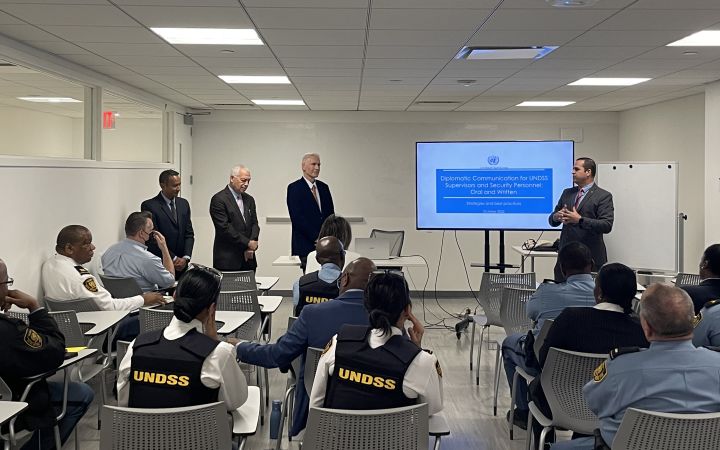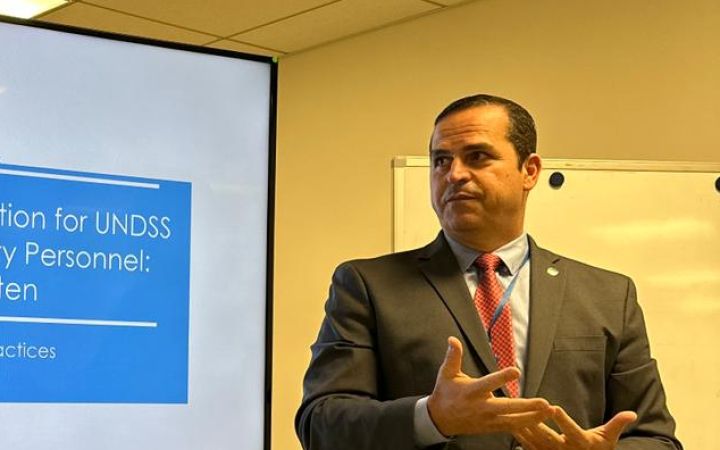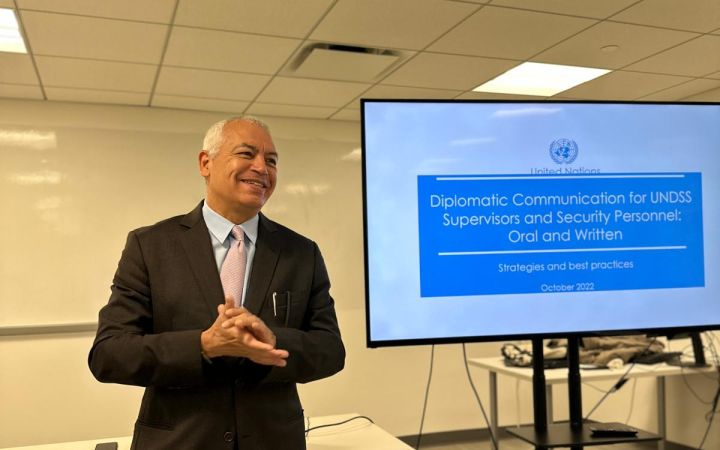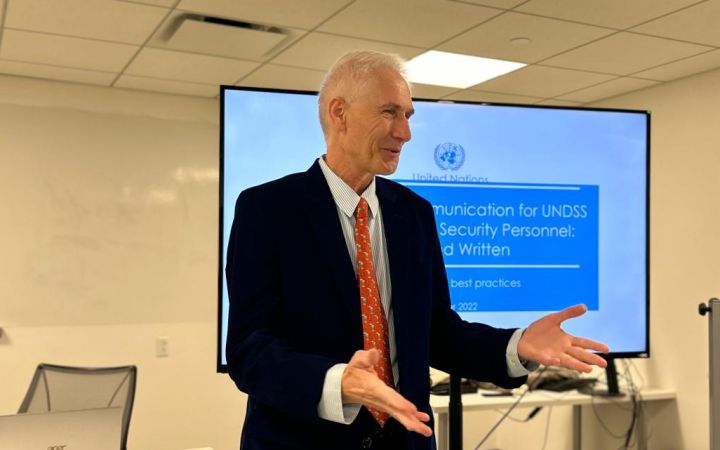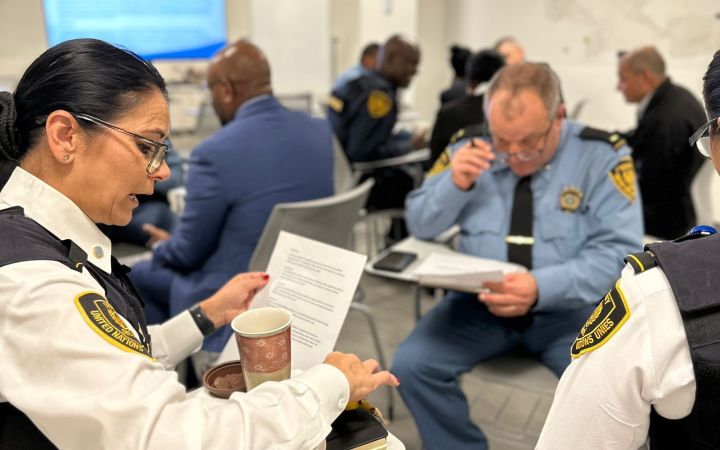20 October 2022, New York, USA – The United Nations Institute for Training and Research (UNITAR) New York Office offered a half-day training course on diplomatic communication skills to 29 experienced security supervisors and personnel of the United Nations Department of Security & Safety (UNDSS).
The goal of this uniquely designed programme was to assist UNDSS in fulfilling its mission, which is to enable United Nations system operations through trusted security leadership and solutions. It focused on developing the required technical skills to incorporate diplomatic languages and phrases in appropriate settings comfortably.
Mr Marco A. Suazo, Head of the UNITAR New York Office, then offered his welcome remarks to the participants, organizers, and speakers for their presence and desire to learn and exchange knowledge. He then introduced today’s speaker, Mr Sandy Singer, Instructor in the United Nations Language and Communications Training Unit (LCTU) as well as Consultant and Professor in the field of Written and Oral Communication for Business.
Mr Singer explained how the training would combine lecture and interactive exercises, including examples of challenges that could arise and scenarios to discuss in small groups. He then detailed the agenda, which notably included a focus on special challenges involved in interpersonal communication at the UN, the use of formal and informal language, techniques to soften the tone, and writing issues.
Through practice-oriented briefings and simulation exercises, participants were overall able to further their knowledge of negotiation processes relevant to their duties at the UN Headquarters. They learnt to deal with challenges common in negotiations, including dealing with complex counterparts and facilitating negotiations. The intercultural dimensions of multilateral diplomacy were also put forward as the key to consider in diplomatic communication techniques.


